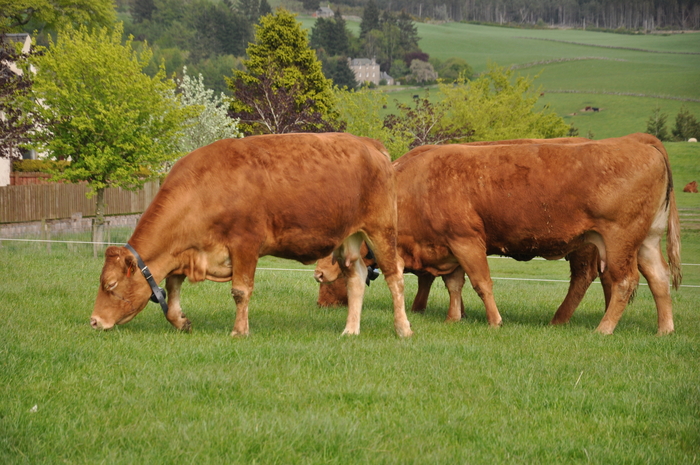The potential of virtual fencing, pitched as the next big technology for livestock and hill farmers in Scotland, is being explored in a practical situation ‘on the ground’ by a farmer-led group set up by SAC Consulting, part of Scotland’s Rural College (SRUC) with the support of Rural Innovation Support Service (RISS) funding. Virtual fencing, which has been extensively researched by SRUC, is a way of managing herd movement through collars and online software more effectively than with physical fencing.
The technology involves a combination of GPS collars, cloud computing and online software to control where livestock grazes. A boundary is ‘drawn’ on the farmer’s smartphone and when the animal approaches that boundary the GPS collar gives audio-warning stimuli, followed by a mild electric pulse if the animal continues. It has been trialled principally on cows in New Zealand, Australia and Norway so far but not yet in a large-scale commercial hill herd in the UK.
Malcolm MacDonald of SAC Consulting, who is co-ordinating the trial group of five Highland and Island hill farmers and crofters, said: “A lot of research has been undertaken into virtual fencing over the last 20 years, but it has yet to be proved in commercial use. It is in the early stages of adoption in places like New Zealand and Norway and it makes total sense for making extensive hill grazing in Scotland easier to manage. It saves time and labour, can protect environmentally sensitive areas and improves herd management as farmers can monitor their stock from their smartphone or tablet. What we want to discover through the trial group is if it’s a practical, affordable solution for hill farmers and crofters in the UK.”
Virtual fencing will make it more practical for hill farmers to manage extensive areas and for crofters to manage common grazing. It also offers a less time- and labour-intensive means of virtual paddock-grazing or gathering stock with a slowly moving virtual fence-line. The closest to market are NoFence in Norway and e-shepherd in Australia and New Zealand, with others under development.
“If there is an appetite for this technology, our farmers as a group – and others interested – will have greater buying power to make it a more affordable solution for their businesses,” said Mr MacDonald.
The group will initially be trialling collars from late March. If these trials show potential, SAC Consulting will be applying for further funding to support greater research of virtual fencing technology in practical situations.
The RISS project benefits from the extensive research already undertaken into virtual fencing, including by SRUC over the last 15 years. Dr Tony Waterhouse, consultant to the project and specialising in livestock systems particularly in the uplands, said:
“This could make a real difference to hard-pressed upland farmers. Having the capability to quickly find their cattle for normal daily checks and to graze cattle where physical fence lines are just not practical have been some of the key priorities for farmers we have spoken to. This is a sophisticated means of managing their stock with the peace of mind of being able to see it all working on their smartphones. Research shows that stock learns the system in 24 hours and is not stressed by it, so overall, from the findings so far, I think the system is also better for animal welfare than wire-based systems.”


